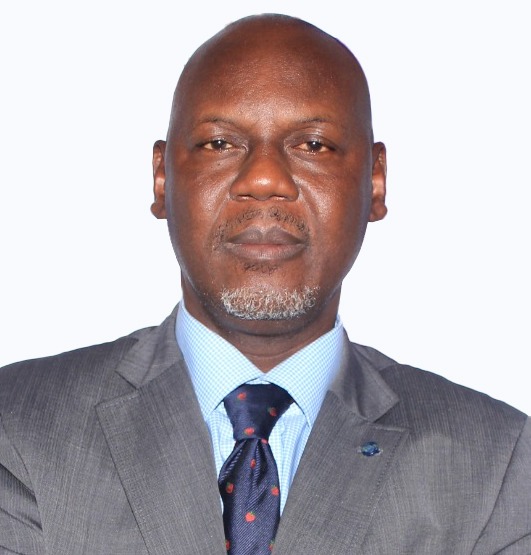About CARA
Canadian Association for African Refugees (CARA) is a humanitarian relief organization with headquarters in Barrie, Ontario, Canada. CARA’s mandate spans to create awareness in Canada about the rights and plight of refugees, and to mobilize relevant tools as well as resources to empower these refugees for integration and poverty alleviation. since most refugees and displaced persons generally remain close to their origin, we take into strong regard their psychosocial stability to extend same care to refugees and internally displaced persons in Africa. Refugees are persons fleeing from conflict, wars or persecution in their country of origin.
According to the UN Refugee Agency (UNHCR), the number of refugees, asylum seekers and internally displaced persons (IDPs) has reached its highest point since World War 2, with over 108 million persons, including women and children by the end of 2022, indicating an increase of 19 million at the end of 2021. Over 30 million of these populations are in Sub-Sahara Africa. CARA was founded in December 2018 by a group of human rights defenders as a response to the systematic lack of information, support and media coverage about the huge refugee challenges in Canada and Africa by extension, and its consequences on the impact both on the refugees and the broader Canadian society.
Our Logo

Incorporated under the Canada Not-for-profit Corporations Act (NFP Act No. 1116251-9), CARA work towards bridging the media gap in Canada with regards to the lack of adequate, balanced and credible information and knowledge about the challenges facing the millions of refugees, asylum seekers in Canada, not leaving out refugees and internally displaced persons (IDPs) in Africa. Equally, the provision of guidance and mentorship for integration into the Canadian lifestyle and regulations constitute a significant service package to our outreach. The essence is to re- awaken the consciences of, and to mobilize renewed support from the Canadian society and donor organizations in their traditional role as defenders of the rights of vulnerable people as enshrined in international law to which Canada is a Signatory.
Other Logo variants

Our Mission
We aim to empower African refugees through holistic relief, including mentorship, resource mobilization, and partnerships to enhance livelihoods.
Vision
CARA envisions a Canadian society where displaced persons lead productive, autonomous, and fulfilled lives with dignity and pride
Core Values
Our commitment to inclusivity, transparency, and selflessness drives our mission to provide access and service to African refugees.
What We Do
CARA, through dialogue, partnership, and advocacy, engages to better the status of African Refugees in a bid to leverage the range of challenges related to integration, autonomy, and livelihood in Canada particularly, then by extension in Africa in several domains.
Within the various programs and initiatives to support refugees, such as the Resettlement Assistance Program, which provides initial settlement supports, and the Private Sponsorship of Refugees Program, which allows private individuals and groups to sponsor refugees, CARA collaborates with the Canadian government, NGOs, community organizations, humanitarian donors, and provincial and municipal authorities to address challenges and create a welcoming environment for African refugees. Here are the five key areas:
Integration and Settlement
One of the primary challenges is ensuring the successful integration and settlement of refugees into Canadian society. This includes providing language training, access to education, employment opportunities, psychosocial support, and social support networks. Language barriers, trauma, cultural and religious differences, and lack of self-esteem can impede the integration process.
Housing
Adequate and affordable housing is a significant challenge for refugees in Canada. High housing costs, especially in major cities, can make it difficult for refugees to find suitable accommodation. This can lead to overcrowding, homelessness, and housing insecurity.
Employment and Economic Integration
Securing employment is crucial for refugees to become self-sufficient and fully integrated into Canadian society. However, refugees often face barriers in accessing job opportunities due to language barriers, lack of Canadian work experience, and difficulties in credential recognition. We shall make efforts to address these challenges by providing targeted support, job training, and access to bridging programs.
Access to Healthcare and Social Services
Refugees may require specialized healthcare services, including trauma support and mental health services. Ensuring that refugees have timely access to healthcare and social services can be a challenge, particularly in remote areas with limited resources. Coordinating and delivering appropriate services to meet the diverse needs of refugees is a core priority.
Discrimination and Xenophobia
While Canada generally has a positive attitude towards refugees, instances of discrimination and xenophobia can still arise. Refugees may face prejudice, stereotypes, and social exclusion, which can impact their overall well-being and integration. We make efforts to combat discrimination and promote inclusive communities as important strategies to address this challenge.
Why African Refugees?
Figures from the UN Refugee Agency (UNHCR) shows that Sub-Saharan Africa alone contributes about one-third of the world’s refugee population. The number continues to soar triggered by insecurities, human rights violations and poverty in Democratic Republic of Congo, Cameroon, Nigeria, the Central African Republic (CAR), Chad, Burundi, South Sudan, Mali, Niger and Burkina Faso.
Finding solutions to refugee crises in Africa has always been a herculean task because of lack of political will, bad governance and the non-respect of international conventions. Also, because of dwindling resources and access to risk zones for urgent humanitarian assistance, movement of persons out of these zones presents as the only chance to live. Most recently, Western donors and partners in international humanitarian assistance have shifted to the crises in Isreal, Ukraine, Russia, Syria, and and other areas faced with natural disasters worldwide, thus making the plight of African refugees even more relegated. Yet, Africa constitutes the largest number of displaced persons in the world, with Canada seemingly a safe heaven for many.
"CARA therefore intends to work with the Canadian society in order to reverse the growing trend of their strategic programs in favor of international humanitarian assistance for African refugees in Canada and Refugees and IDPs in Africa for poverty reduction in line with the Sustainable Development Goals (SDGs)."
Leadership
Meet the Faces Behind Our Impact.

Eric Nubia
CEO

Dr. Denis Kehdinga Sema
Secretary & Operations Manager

Dr. Mukete Tahle Itoe, PhD
1st Technical Adviser and Counsel

Nibaya Toukam S. Blanche
Finance and Accounts

Sunyin Elisbrown
Software Engineer
Volunteer
Our Partners
We appreciate the unwavering support from our partners



